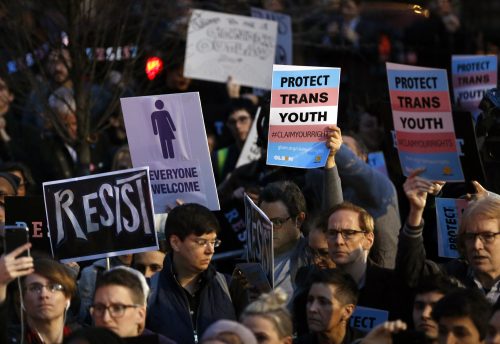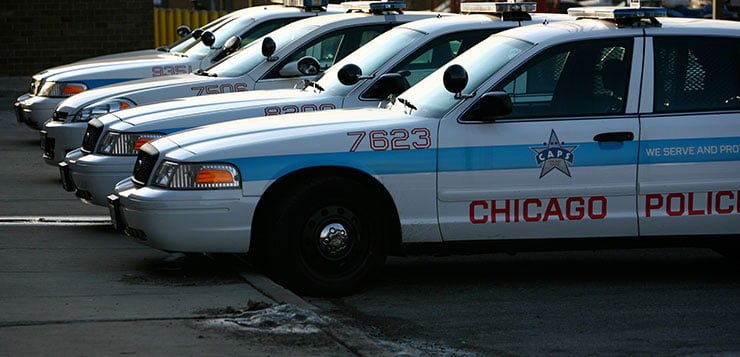Rallies and protests supporting transgender youth have happened around the country since President Donald Trump issued a “dear colleague” letter Feb. 22 that stated that his administration would roll back Obama-era guidelines to protect transgender students. These guidelines included allowing trans students to use the bathroom of their gender identity.
Elon Sloan, who is a non-binary trans person and uses the pronouns they/them/theirs, said that Trump’s move eliminates a federal framework and guidelines for schools, but doesn’t change the fact that trans students are still protected because of Title IX.
Title IX is a federal law that makes it illegal for schools that receive federal funding to discriminate based on sex. Though it doesn’t specifically talk about every situation where discrimination may happen, it provides some guidelines as to what these situations may look like and how schools might respond, according to the National Center for Transgender Equality (NCTE).
Even though these guiding principles have been revoked, that doesn’t change the fact that schools have to treat students according to their gender identity, including restroom and locker room access, but it may mean that the Department of Education won’t help in cases of discrimination — though students can still go to court to defend their rights, NCTE said.

Schools, Sloan said, should have their own guidelines on Title IX. Sloan said that DePaul, like many other institutions, fails its trans students and could do more in the future to help.
“The conversation about Title IX is much bigger. Schools should have their own guidelines (about Title IX), not empty shows of solidarity. Schools have to be realistic about the environment we offer,” Sloan said. “This is a marker of things to come in the future. Realistically institutions that want to be allies will think about how they are supporting that desire.”
In response to Trump’s letter, DePaul and other universities issued statements, stating they will support trans students on their campuses and will not follow Trump’s guidelines.
In DePaul’s statement, which was signed by Provost Marten denBoer and Vice President for Student Affairs Eugene Zdziarski, they said the changes will have no effect at DePaul and “procedures to support our transgender students in student records, housing and facility use, as well as in university resources such as LGBTQA Student Services (…) will continue.”
“We will always ensure that we are doing everything we can to actively promote an inclusive environment for all students,” the statement said. “We will take steps to respond to any concerns that arise.”
In a statement to the DePaulia, the university expanded on its statement to the student body, saying that “Chicago municipal law requires that individuals be permitted to use sex-segregated facilities such as restrooms and locker rooms consistent with their gender identity. DePaul has no plans to change its existing policies or procedures on this issue.”
Sloan, who is also an LGBTQA student advocate for LGBTQA Student Services, said that LGBTQA Student Services did an assessment on the climate on campus and found that trans students who are non-binary feel the worst about campus climate and also feel less safe on campus. To combat this, they said, institutions like DePaul would focus on educating faculty, staff and students.
“It’s one thing to affirm pronouns and that trans students are on campus, but we have to make sure that there are clear places for support,” Sloan said. “It’s hard to make sure that’s available.”



